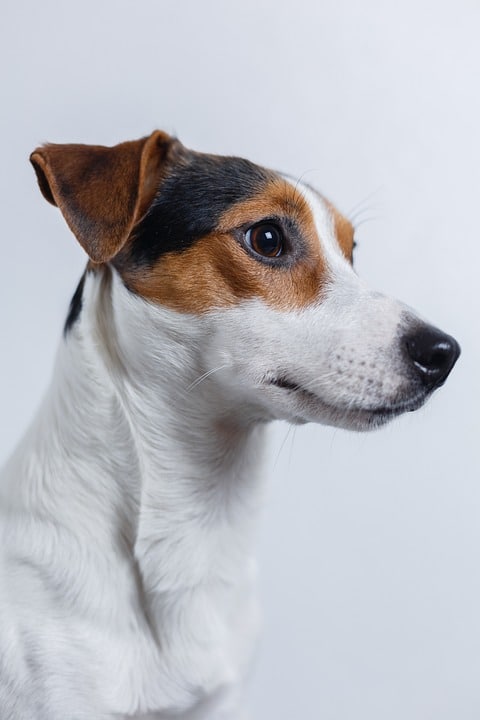The Link Between Rabies Vaccination and Dog Behavior
Introduction:
Rabies is a deadly viral disease that affects mammals, including both humans and dogs. Vaccination plays a crucial role in preventing the spread of this disease and protecting both human and animal populations. However, there has been ongoing debate about the potential link between rabies vaccination and changes in dog behavior. In this article, we will explore the available research and scientific evidence to understand the relationship between rabies vaccination and dog behavior.
Understanding Rabies Vaccination:
Rabies vaccination is a preventative measure used to protect dogs and other animals from the rabies virus. It involves the administration of a vaccine that contains weakened or inactivated rabies virus particles. This vaccine stimulates the dog’s immune system to produce antibodies that fight against the virus.
Rabies vaccination not only protects individual dogs from contracting the disease but also helps to control the spread of rabies within communities. In many countries, including the United States, it is a legal requirement for dogs to be vaccinated against rabies.
Can Rabies Vaccination Affect Dog Behavior?
Over the years, some pet owners and veterinarians have reported changes in dog behavior following rabies vaccination. These changes include alterations in temperament, aggression, and other behavioral issues. However, it is essential to examine these claims objectively and consider the scientific evidence available.
Scientific Studies and Evidence:
Several scientific studies have explored the link between rabies vaccination and dog behavior. One study conducted by Houpt et al. (1996) examined behavioral changes in dogs following rabies vaccination. The study found that some dogs displayed increased aggression, fearfulness, and generalized anxiety after vaccination. However, this study had limitations, including a small sample size, the lack of a control group, and possible confounding factors.
Another study, conducted by Dodman et al. (2000), investigated behavioral changes in Doberman Pinschers following vaccination. The study revealed a significant increase in self-directed, owner-directed, and stranger-directed aggression after vaccination compared to baseline levels. However, this study also had some limitations, such as a small sample size and a breed-specific focus.
Despite these studies suggesting a potential link between rabies vaccination and changes in dog behavior, it is important to note that most dogs do not exhibit significant behavioral changes after vaccination. The majority of vaccinated dogs continue to exhibit their regular behavioral patterns without any noticeable alterations.
Experts’ Opinions on the Link:
Experts in veterinary medicine have weighed in on the controversy surrounding the link between rabies vaccination and dog behavior. The American Veterinary Medical Association (AVMA) and the American Animal Hospital Association (AAHA) have released statements acknowledging the reported behavior changes but pointing out the lack of substantial scientific evidence supporting a direct causative relationship between vaccination and behavior changes.
The American College of Veterinary Behaviorists (ACVB) has also addressed this issue. They state that behavioral changes observed in some dogs following vaccination may be due to factors other than the vaccine itself, such as the stress associated with the veterinary visit or the dog’s prior disposition towards anxiety or aggression. They emphasize that the benefits of vaccination in protecting public health from rabies far outweigh the risks associated with potential behavioral changes.
Frequently Asked Questions (FAQs):
Q: Can rabies vaccination cause aggression in dogs?
A: While some studies have suggested a potential link between rabies vaccination and aggression in dogs, the majority of dogs do not exhibit any noticeable behavioral changes after vaccination. The reported cases are relatively rare, and experts believe that factors other than the vaccine itself are likely involved.
Q: Are there any alternative vaccinations that are less likely to cause behavioral changes in dogs?
A: Currently, there are no alternative rabies vaccines available in most countries. However, it is important to note that the reported behavioral changes following vaccination are relatively rare, and the benefits of protecting dogs and public health from rabies outweigh the potential risks.
Q: How can I minimize the risk of behavioral changes in my dog after vaccination?
A: To minimize any potential stress or anxiety associated with vaccination, you can consider incorporating positive reinforcement techniques, such as providing treats or using calming pheromone products, during the vaccination process. Additionally, it may be helpful to visit a veterinarian who is experienced in canine behavior to help alleviate any anxiety or aggression related issues.
Q: Should I avoid vaccinating my dog against rabies due to potential behavior changes?
A: No, it is not advisable to skip rabies vaccination for your dog. Vaccination against rabies is crucial for protecting your dog’s health and preventing the spread of the disease. The occurrence of behavioral changes after vaccination is relatively rare, and the benefits of vaccination far outweigh the potential risks.
Conclusion:
While some studies have suggested a potential link between rabies vaccination and changes in dog behavior, it is important to examine the available scientific evidence in a balanced manner. The majority of dogs do not exhibit significant behavioral changes after vaccination, and the reported cases are relatively rare. The consensus among veterinary experts is that factors other than the vaccine itself are likely involved in any observed behavioral changes. The benefits of rabies vaccination for public health and the individual dog’s wellbeing far outweigh the potential risks. If you have concerns about your dog’s behavior following rabies vaccination, it is advisable to seek guidance from a veterinarian who specializes in canine behavior.

